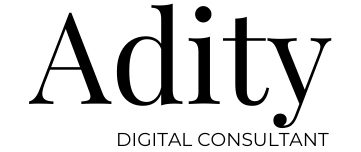Are you a digital marketer or content marketer? If yes, you must know about the EAT mantra of content marketing – “Expertise, Authoritativeness, and Trustworthiness”. In the year 2021, Google would consider the EAT mantra of content marketing extremely seriously. The content that complies with the three essential aspects of the content -“Expertise, Authoritativeness, and Trustworthiness” will be ranked higher in google search result pages. If the EAT concept is so important, would you like to miss it? If you do, you will not be able to protect the website position in the Google SERP.
What Do You Mean By The EAT Mantra of Content Marketing?
You already know that the E-A-T refers to Expertise, Authoritativeness, and Trustworthiness of the content published on the website pages by a business brand. EAT has been an integral part of SEO since 2015 when the major SEO guidelines were released through the “Search Quality Rater Guidelines”. These three points are listed as the essential factors that the search engine giants would use to examine or evaluate the web page content’s worthiness and consider the overall web page quality. But the EAT factors didn’t receive any prominence until 2018 because Ahrefs was using them as the content evaluating parameters. It is essential for all digital marketers and content writers to understand all three concepts separately and then employ them in the content marketing and digital marketing strategies.
How Will You Improve Your Content According To The Google EAT Mantra of Content Marketing?
When everyone is striving hard to embrace the Google EAT mantra, you need to focus on something that will help you and your business stand out from the crowd. You need to design a win-win situation that will help you enhance the effectiveness of the content and increase the ranking of your website/web pages in Google SERP.
Start The Effective Link Building:
According to the research conducted by expert digital marketers and analysts, it is revealed that Google EAT would be relying on high-quality references and links from authorized websites. Google search engine bots will easily get to know whether your content is linked to highly authoritative sites or low-quality sites. Based on this insight, the ranking would be decided.
Focus Providing Updated Content To The Users:
If your website is displaying content that is two to three years old, then such content would not be given due consideration by the search engine bots. For instance, if your website is based on some financial advice or medical information, then the content uploaded on the website should be the latest and refer to data of 2 to 3 years. Old content will be considered low-quality, and your website/web pages will lose out the ranking.
Don’t Use False Or Incorrect Facts In The Content:
According to Google’s EAT mantra of content marketing, it is stated that the content being published on the website must refer to the correct facts or data. Incorrection display of data means you are giving out false information to the readers. When you offer legit data and facts from the trusted sources, Google will deem your content as high-quality and help your website rank better.
Get Numerous Positive Reviews And Feedbacks:
Reviews can be in website textual testimonials, video testimonials, or Google reviews. All the positive feedback and reviews you receive through the content or services will help build a high reputation. Besides this, you can encourage your happy customers to provide reviews of various authoritative review websites. All this positive feedback would be considered by the Google search engine bots and provide you a better ranking.
Give A Wikipedia Page For Your Business:
According to the guidelines of the EAT concept, it is always recommended to have a Wikipedia page. [It is not at all easy to create one]. Although, you must keep trying. Once you start getting good reviews and backlinks from authoritative websites, it would be easy for you to go for a Wikipedia page. Once you have a Wikipedia page, no one can stop your website from ranking on the very first page of Google SERP. The content you use on the website will be the greatest contributor to improving the website’s reputation and trustworthiness.
Display Your Authentication On Your Website:
Expert digital marketers and content crafters state that content on the website shows your business authenticity. In simple words, you must have” The Team”,” AboutUs”, “Contact Us” pages on the website. It will create a great impact as it fulfills the ‘Trustworthiness’ parameter of the EAT mantra of content marketing. If you have a blog section on the website, you must include” Author’s bio” to show that the visitors’ content is legit.
How The New EAT Mantra of Content Marketing Will Show Its Effectiveness?
All the points above convey how important it is to embrace the content marketing strategies put forward by EAT.
Content Should Be Highly Informative -Expertise:
If we consider the ‘Expertise’ parameter of the website, your website must publish exceptionally knowledgeable content so that the readers find it useful. But you need to be careful because your content must be something that your target audience understands.
Content Should Have High-Quality Backlinks – Authoritative Parameter:
Although the content is highly informative, it should also have high-quality backlinks from authoritative websites. With this, the content’s relevance increases, and Google will increase the ranking of your web pages/website in the Google SERP.
Website Content Must Hold Business Information – Trustworthiness:
You must mention the company profile, the company’s history, its future scope, its vision, the team, and the principal founders on the website. It will reflect that the business is authentic and increase the trustworthiness of the website.
When you know all these crucial parameters on the Google EAT mantra of content marketing – Expertise, Authoritativeness, and Trustworthiness, it is quite essential for you to re-audit the content on your website and make the required changes. Only then would you be categorized under the EAT guidelines.

